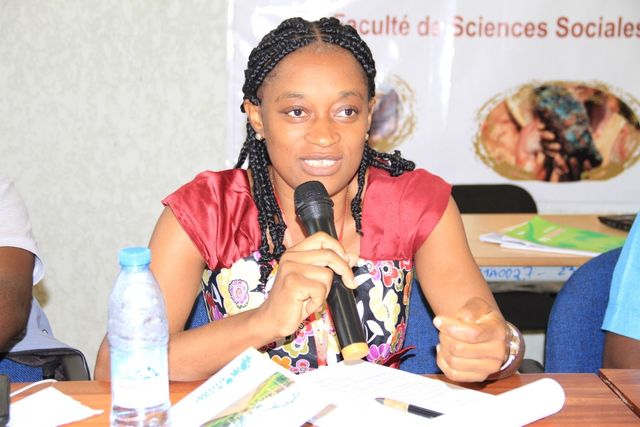Review of Picciotto’s Lawyers as Constructive Ideologists of Corporate Capitalism: The Legal Framing of Software – Applying to Health Apps

In the digital tapestry of today’s economy, law acts not merely as a thread but as a weaver, shaping patterns and designs with profound skill and intent. This is the compelling perspective Picciotto in his latest article offers in his examination of the legal framing of software, and it is this lens through which we must view the regulation of health apps—a burgeoning facet of digital health technology.
What comes out very clearly in Picciotto’s article is his perspective on the role of law and lawyers in shaping the digital economy, particularly in the realm of software, challenging traditional views of law as a passive and neutral system. He links legal practices and concepts with socio-economic processes, revealing how legal interpretations and battles over intellectual property rights significantly influence technological development and corporate power dynamics. Picciotto’s approach in combining political economy with a sociological focus on lawyering practices provides a comprehensive framework for understanding the complex interplay between legal frameworks, technological innovation, and societal change.
I want to attempt to apply Picciotto’s thinking to regulating health apps and borrow his analysis on the sociology of action and lawyering practices that he addresses to understand how this plays out in the realm of health apps using the following three themes outlined by him.
Appropriation of software through law
The appropriation of software through law in the context of health apps involves a complex interplay of intellectual property rights, privacy regulations, and consumer protection laws. This process is not merely a straightforward application of existing legal principles but is shaped by the active involvement of lawyers who craft and interpret the legal texts, what Picciotto refers to as the ‘cognitive community’. These legal professionals, as Picciotto argues, are not passive actors but are instrumental in shaping how software is legally framed, balancing the interests of various stakeholders including developers, users, and regulatory bodies. In the context of health apps, this might involve defining the scope of intellectual property protection for software algorithms, user interface designs, and database structures, while also ensuring compliance with health data regulations.
Exploitation of ownership
Exploitation of ownership, particularly in the context of health apps, reflects a broader trend in digital technologies where companies leverage legal frameworks to establish strong control over their products. End User Legal Agreements (EULA) are a prime example of this, often containing clauses that restrict the user’s ability to modify, share, or otherwise use the software in ways not expressly permitted by the provider. This control is legally enforced through copyright laws and licensing agreements, which are designed and interpreted by lawyers to maximise control and profit for the software developers. This approach aligns with Picciotto’s view of lawyers as mediators and constructors of legal texts that serve corporate interests in the digital economy. Thus, his idea around ‘cognitive capture’ emerges as a crucial aspect for me in this context of exploitation, where the legal and technical language crafted by legal professionals can obfuscate the underlying power dynamics and reinforce a normative bias towards corporate control, effectively shaping user perceptions and understanding to align with corporate interests. I tried to understand this from the context of health apps and find that cognitive capture plays out through the crafting of EULAs and privacy policies that users must agree to before using the app. These legal documents are often long, complex, and filled with jargon that the average user may not fully understand. This complexity can lead users to consent without fully grasping the implications, particularly regarding data privacy and ownership rights.
Health apps collect sensitive personal health information, and the terms defining the use, sharing, and storage of this data are critical. Lawyers, acting on behalf of health app companies, use their expertise to create terms that comply with the law while also maximising the company’s ability to use that data for profit—often through data mining, targeted advertising, or even selling anonymised data to third parties. The legal frameworks are thus designed to protect the company’s interests under the guise of legal compliance and user consent.
The influence of ‘cognitive capture’ is further reinforced as users become accustomed to clicking ‘agree’ without contesting or even reading the terms, which can lead to a normalisation of extensive data collection and reduced privacy expectations. In this way, the drafting of legal texts for health apps not only enables corporate control over the software and data but also subtly shapes user behaviour and expectations, aligning them with the interests of the digital economy’s corporate players. This phenomenon underscores Picciotto’s central argument on the pivotal role that lawyers play in the intersection of law, technology, and society, as they navigate the delicate balance between user rights and corporate interests.
Control of users through End User License Agreements (EULAs)
The control of users through EULAs in health apps also exemplifies the dynamic and socially constructed nature of law as argued by Picciotto. EULAs are not just legal documents but also tools of social control, dictating how users can interact with the software. The terms are often complex and not fully understood by users, yet they play a critical role in mediating the relationship between the user and the software provider. This aspect of EULAs reflects the broader socio-legal processes where legal texts are used to shape and regulate behaviour in the digital realm. The ‘fluidity’ and ‘contestability’, these terms I borrow from Picciotto’s paper, of these agreements often reflect the power dynamics between users and software providers, with the latter typically holding more power in dictating terms.
Applying Picciotto’s observations on the sociology of action and lawyering practices to the analysis of health apps and their legal frameworks enhances our understanding of how lawyers navigate and influence the legal landscape of digital health technologies. His paper makes it quite clear on the how.



